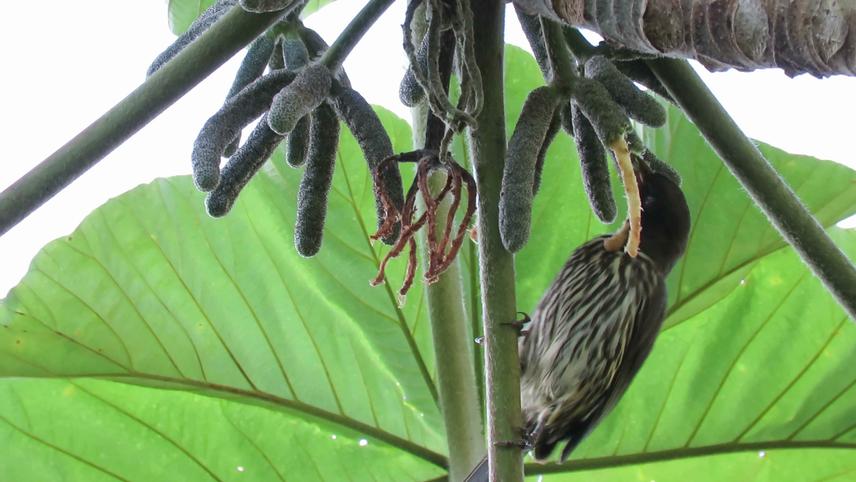Spencer Christian Schubert
Other projects
23 Mar 2016
Exploring the Potential of Endemic Colonial-Nesting Birds as Natural Agents of Forest Restoration in Degraded Lands of the Dominican Republic
19 Apr 2017
Applications of Avian Seed Dispersal for Forest Restoration in the Dominican Republic and a Closer Look at Biodiversity across Farmland Landscapes
My project seeks to answer several questions about tropical wet forest communities in the Dominican Republic. Specifically, my field studies aim to assess the biodiversity of forest plants and frugivorous bird communities in human-modified agricultural landscapes and the web of interactions between these two assemblages to understand the causes of spatio-temporal variation in seed dispersal as an ecosystem function. In the context of this ongoing research, I am working with several local partners to incorporate our growing knowledge of avian seed dispersal to improve small-scale forest restoration projects through experiments involving artificial perch installation to attract seed-dispersing birds and using natural history information to recommend a greater variety of ecologically appropriate tree species for planting. Our long-term goals include expanding forest restoration efforts, providing training opportunities for local professionals (e.g. biologists, students, tour guides), and fostering future pathways to long-term ecological research.

A large component of our field work involves foraging observations to identify and quantify feeding-dispersal relatio. ©Alejandra Sacbel Monsiváis
As is the case in many other developing nations in tropical regions, the Dominican Republic has a long history of aggressive agricultural expansion and land development that have resulting in large scale forest habitat loss. In this context of this legacy of human disturbance, my project aims to study mutualisms between frugivorous birds and forest plants and the resulting seed dispersal processes in agricultural landscapes. Over the past two years, my project has primarily focused on the role of the most common bird species in abandoned cattle pastures in dispersing seeds and kick-starting the regeneration process below natural and artificial perching structures. As the project expanded in 2017, so did our focus to consider how biodiversity varies across landscapes and the extent to which the plant-animal relationships that underlie seed dispersal processes also vary.
During 2018, we are expanding on these original research directions by continuing to monitor our experiments in restoration plots and intensifying our sampling of local plant-bird networks using both observational sampling of foraging activity and DNA-barcoding of seeds collected in seed traps. Ultimately, our analyses will lead to a comprehensive understanding of seed dispersal mutualisms, which will allow us to identify both plant and avian taxa of greatest importance to forest recovery. Another new development in my project this year will involve its role in the recently established non-profit environmental foundation, Verde Soy. My partner, Holly Garrod, and I have joined the board of this organization together with the Rodriguez family (owners of Rancho Baiguate) and several other environmentalist leaders in the Jarabacoa community to launch a campaign to create a federally recognized wildlife sanctuary in the mountains near Armando Bermudez National Park. Here we aim to carry out various conservation projects involving avian population monitoring, habitat restoration, and targeted conservation efforts using nest boxes to aid populations of cavity-dependent species (i.e. parrots, trogons, and swallows). In the future, we hope for this sanctuary to serve as stronghold for preserving forest ecosystems and for long-term ecological research by Dominican academic institutions.